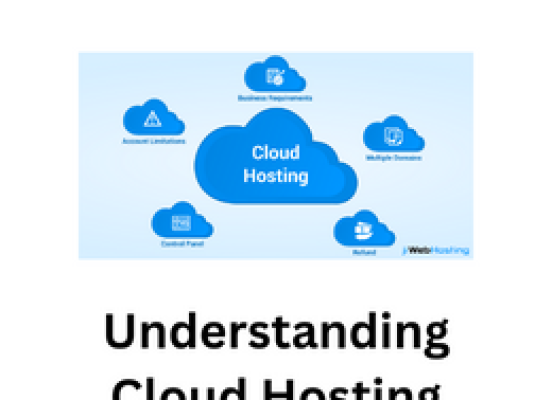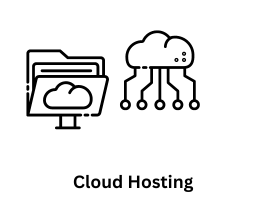
Introduction to Cloud Hosting: An overview of cloud hosting and its advantages over traditional hosting methods.
- By admin --
- Tuesday, 25 Jul, 2023
In recent years, cloud hosting has emerged as a revolutionary solution in the realm of information technology. Traditional hosting methods, such as dedicated servers and on-premises infrastructure, have been the go-to choices for businesses and individuals alike. However, as technology continues to evolve, cloud hosting has rapidly gained popularity due to its flexibility, scalability, and cost-effectiveness. This article provides a comprehensive overview of cloud hosting and highlights its advantages over traditional hosting methods.
Understanding Cloud Hosting:
Cloud hosting is a model that allows businesses and individuals to access computing resources over the internet. Instead of relying on physical servers or data centers, cloud hosting utilizes virtual servers hosted on a vast network of interconnected machines. These resources can include processing power, storage, and networking capabilities, which are distributed across various data centers, often in different geographical locations. Users can access and utilize these resources on-demand, paying only for what they use, similar to a utility-based payment model.
Key Advantages of Cloud Hosting:
-
Scalability: One of the most significant advantages of cloud hosting is its ability to scale resources up or down based on demand. Traditional hosting methods often require upfront capacity planning, making it challenging to accommodate sudden spikes in traffic or usage. Cloud hosting allows for automatic scaling, ensuring that applications and websites can handle varying workloads efficiently.
-
Flexibility: Cloud hosting offers a wide range of services and configurations, allowing users to tailor their environments to meet specific requirements. Users can choose from different service models (IaaS, PaaS, SaaS) and deployment models (public, private, hybrid) based on their needs, without the need for substantial capital investment.
-
Cost-Effectiveness: Traditional hosting methods often involve purchasing and maintaining physical hardware, leading to high upfront costs and ongoing expenses for maintenance and upgrades. Cloud hosting eliminates these capital expenditures, as users pay only for the resources they consume on a pay-as-you-go basis. This cost model makes cloud hosting particularly attractive to startups and small businesses.
-
Reliability and Redundancy: Cloud hosting providers typically operate multiple data centers across different regions, ensuring redundancy and high availability. If one data center experiences issues, services can automatically failover to another, minimizing downtime and improving reliability.
-
Global Reach and Accessibility: Cloud hosting allows users to access their applications and data from anywhere with an internet connection. This global accessibility is particularly advantageous for businesses with a geographically dispersed workforce or customers.
-
Security: While security concerns are often cited as a potential drawback of cloud hosting, reputable providers invest heavily in advanced security measures to protect their clients' data and infrastructure. Cloud hosting can offer enterprise-level security features, including encryption, multi-factor authentication, and regular data backups.
-
Automated Backups and Disaster Recovery: Cloud hosting providers often include automated backup and disaster recovery solutions as part of their service offerings. This feature ensures that critical data is regularly backed up and can be quickly restored in the event of data loss or system failure.
-
Environmentally Friendly: Cloud hosting's resource pooling and on-demand provisioning result in more efficient utilization of computing resources. This, in turn, can reduce energy consumption and contribute to a smaller carbon footprint compared to traditional hosting methods.
-
Continuous Innovation and Updates: Cloud hosting providers continually upgrade and enhance their services, giving users access to the latest technologies without the need for manual updates or maintenance.
-
Support and Expertise: Cloud hosting providers often offer dedicated customer support and technical assistance, which can be invaluable, especially for businesses without a dedicated IT team.
Conclusion:
Cloud hosting has revolutionized the way businesses and individuals approach information technology and application deployment. With its unparalleled scalability, cost-effectiveness, and flexibility, cloud hosting has quickly become the preferred hosting solution for organizations of all sizes. While traditional hosting methods still have their place in certain scenarios, the advantages of cloud hosting make it a compelling choice for the majority of modern businesses seeking to thrive in an increasingly digital and competitive landscape. As technology continues to evolve, cloud hosting is likely to remain at the forefront of IT solutions, providing users with the tools they need to innovate, grow, and succeed in the digital age.





